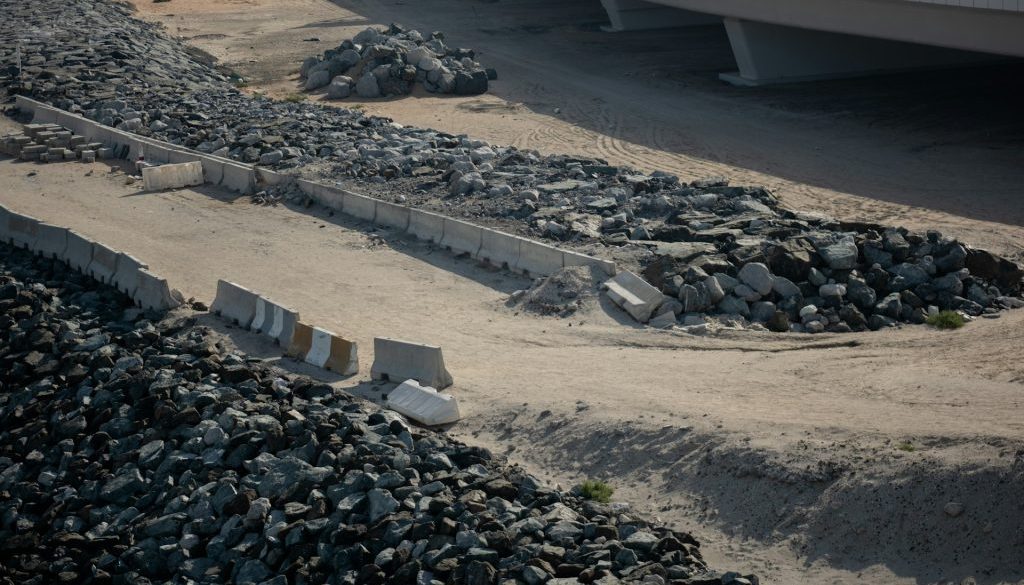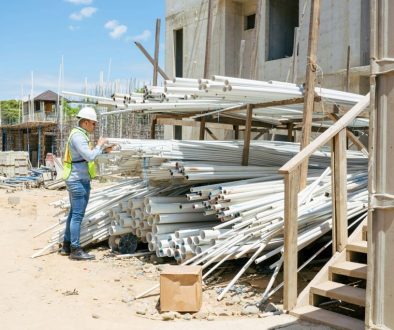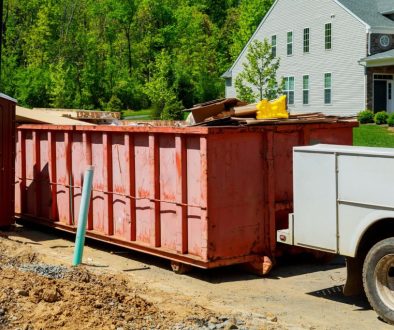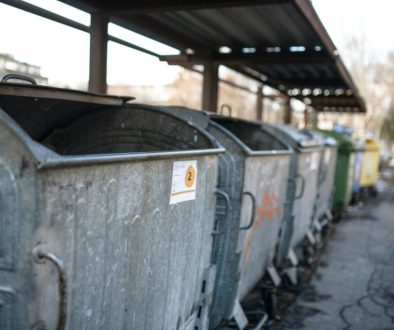As the construction industry evolves, finding sustainable alternatives to traditional building materials has become a priority. Businesses are now shifting towards more environmentally friendly practices, including the use of recycled aggregates. As a family-run skip hire and aggregate company servicing Staffordshire, Enviro Skip Hire understand the value of sustainable processes and aim to share our knowledge to help businesses make informed decisions about their materials.
In this comprehensive guide, we will explore the benefits of integrating recycled aggregates into construction projects, including cost savings, reduced environmental impact, and enhanced project sustainability. We will also discuss the different types of recycled aggregates available and tips for sourcing and incorporating these materials into your projects. Our goal is to provide businesses with the information they need to make responsible choices that align with their environmental goals, ultimately contributing to a greener future for the construction industry and our planet.
With the increasing demand for green building practices, businesses need to consider the long-term value of incorporating recycled aggregates into their projects. Using recycled materials reduces the consumption of natural resources and the waste generated and can lead to significant cost savings in the long run. By working with professionals like us who have expertise in sustainable waste management and aggregates, you can access resources and information to make the most out of recycled aggregates, boosting the sustainability of your construction projects and the overall health of our environment.
1. Understanding Types of Recycled Aggregates
To embrace the use of recycled aggregates, businesses should first become familiar with the various types available, each derived from different sources and offering unique characteristics. Common types of recycled aggregates include:
- Crushed concrete: Derived from demolished concrete structures, this material is suitable for road construction and drainage layers, as well as as a substitute for natural gravel.
- Crushed bricks and tiles: Sourced from demolition waste, these materials can serve as an alternative to natural stone aggregates or be used in the production of concrete blocks.
- Recycled glass: Glass waste can be crushed into sand-sized particles for use in asphalt production or as an aggregate in concrete mixtures.
- Recycled asphalt pavement: Reclaimed from existing roads or pavements, this material can be reused in new asphalt mixtures, reducing the need for new asphalt production.
2. Key Benefits of Incorporating Recycled Aggregates
The use of recycled aggregates in construction projects offers a variety of environmental, economic, and performance benefits, including:
- Reduced waste and landfill space: Using recycled materials diverts waste from landfills, reducing the environmental impact associated with waste disposal and preserving landfill capacity.
- Conservation of natural resources: Incorporating recycled aggregates reduces the need for virgin materials, conserving natural resources and minimising habitat destruction due to quarrying and extraction processes.
- Lower costs: Recycled materials can be more cost-effective than their virgin counterparts, offering businesses potential savings on project budgets.
- Enhanced sustainability credentials: Adopting environmentally friendly construction practices, such as incorporating recycled aggregates, can help businesses bolster their green credentials and meet sustainability targets.
3. Tips for Sourcing and Incorporating Recycled Aggregates
Selecting and integrating recycled aggregates into construction projects requires careful planning and consideration. Keep these tips in mind to maximise the benefits of using these materials:
- Choose quality materials: Work with reputable suppliers who can provide high-quality recycled aggregates that meet relevant industry standards and specifications.
- Adjust mix designs: When designing your concrete or asphalt mixes, factor in the specific characteristics of recycled aggregates to maximise performance and durability.
- Consider logistics: Plan for the transport and storage of recycled aggregates to minimise environmental impacts, such as increased fuel consumption or emissions.
- Collaborate with experts: Consult with specialists in sustainable materials and waste management to ensure your project complies with environmental regulations and best practices.
4. Overcoming Common Misconceptions
Despite the numerous advantages of using recycled aggregates, some misconceptions may deter businesses from embracing sustainable construction methods. It’s crucial to address these common concerns:
- Quality and performance: Modern recycling technologies ensure that recycled aggregates meet industry standards, offering comparable performance to virgin materials when used appropriately.
- Regulatory compliance: Recycled aggregates are subject to rigorous testing and quality control processes, ensuring they comply with relevant regulations and guidelines.
- Limited applications: Although recycled aggregates may not be suitable for every project, ongoing research and development continue to expand their potential uses in various construction applications.
Conclusion
Integrating recycled aggregates into construction projects offers businesses the opportunity to reduce their environmental footprint while enjoying potential cost savings and improved sustainability. By understanding the types of recycled aggregates available, their benefits, and best practices for sourcing and incorporating these materials, businesses can make informed decisions that align with their environmental goals and contribute to a greener future for the construction industry.
When you need support in selecting and incorporating recycled aggregates into your projects, Enviro Skip Hire’s team of experts is ready to help. Contact us today to learn more about the recycled aggregate options we offer, as well as our commitment to sustainable waste management practices.




